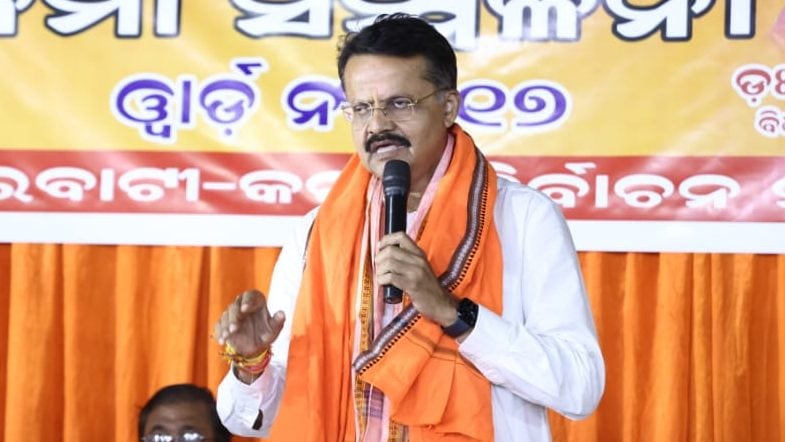New DelhiAug 9, 2025 11:47 IST
First published on: Aug 9, 2025 at 11:47 IST
Amid the continuing logjam in Parliament with the Opposition protesting the Election Commission (EC)’s special intensive revision (SIR) of electoral rolls in poll-bound Bihar and demanding a discussion on it, veteran Lok Sabha MP from Odisha’s Cuttack, Bhartruhari Mahtab, sought to introduce a private member’s Bill to ban cow slaughter across India. However, Mahtab, who joined the BJP in March 2024 after quitting the Biju Janata Dal (BJD), was unable to introduce the Bill for discussion due to disruption in the House.
In an interview with The Indian Express, Mahtab spoke about his Bill and related issues including the parliamentary standoff. Excerpts:
* You sought leave to introduce three private member’s Bills, one calling for the prohibition of cattle slaughter and improvement of cattle breeds. Can you tell us why you think this Bill needs to be introduced?
Yes, I sought leave to introduce three private members’ Bills, including one to prohibit the slaughter of cattle. Many states of India legislated Acts against cow slaughter in the late 1950s and 1960s. I want a law to ban cattle slaughter at the all-India level. The reason is that we need more and better milk production, for which the preservation of cattle wealth is important.
* But the subject is in the State List. So, would not a Constitutional amendment be first required to shift the subject to the Concurrent List for Parliament to pass legislation on it?
It is not necessary. We don’t need a Constitutional amendment when a majority of states have already implemented it. To bring uniformity to the law it is necessary because a large cattle population is traded from one state to another. Especially in the case of Odisha, it is necessary because a large number of cattle are traded from Odisha to other states. Trading is not stopped but killing of cattle needs to be stopped.
* Many have complained that a rise in cattle population leads to increased stray cattle, often causing road accidents and damaging farmers’ crops. What is your take on this problem?
For that society has to take charge with some support from the government. Stray cows, which have been abandoned by owners or are left to fend for themselves, need shelter. They have to be looked after through the construction of gaushalas (cow shelters). Not only on highways, but also in cities, we find a large number of cows outside and that is a nuisance too. That is why a large number of gaushalas need to be constructed and adequate funding needs to be given. We need better cows but the stray cow menace has to be stopped. It is only by taking care of them that we can stop this, and not by killing them.
* Some states have not banned cattle slaughter. There are some parts of India where eating beef is part of local food habits. Is not the idea of a pan-Indian ban against the idea of cultural diversity?
That will not be a problem. There will be some opposition but the main thing is that you need to take care of animals, especially domestic animals… Society also has to take care. There was a time when large numbers of unethical things were being done in society but they have been stopped.
* Your Bill has not been taken up yet since Parliament is unable to function as the Opposition demands a discussion on the Bihar SIR. With little business transacted, who do you hold responsible for the logjam?
I don’t understand why the Opposition is doing it. The window is open so if there is some mistake that they allege, the correction can be done (in Bihar’s electoral rolls)… Stalling the functioning of Parliament is unacceptable.
Secondly, the EC is a constitutional body. If you discuss it in the House, who is going to reply to the questions that will arise during the discussion? If you are discussing something in the absence of the EC, there is a specific rule in Parliament that you should not say something against someone who is not present in the House… I think the Opposition is deliberately doing it because it has an agenda not to allow the House to function.




